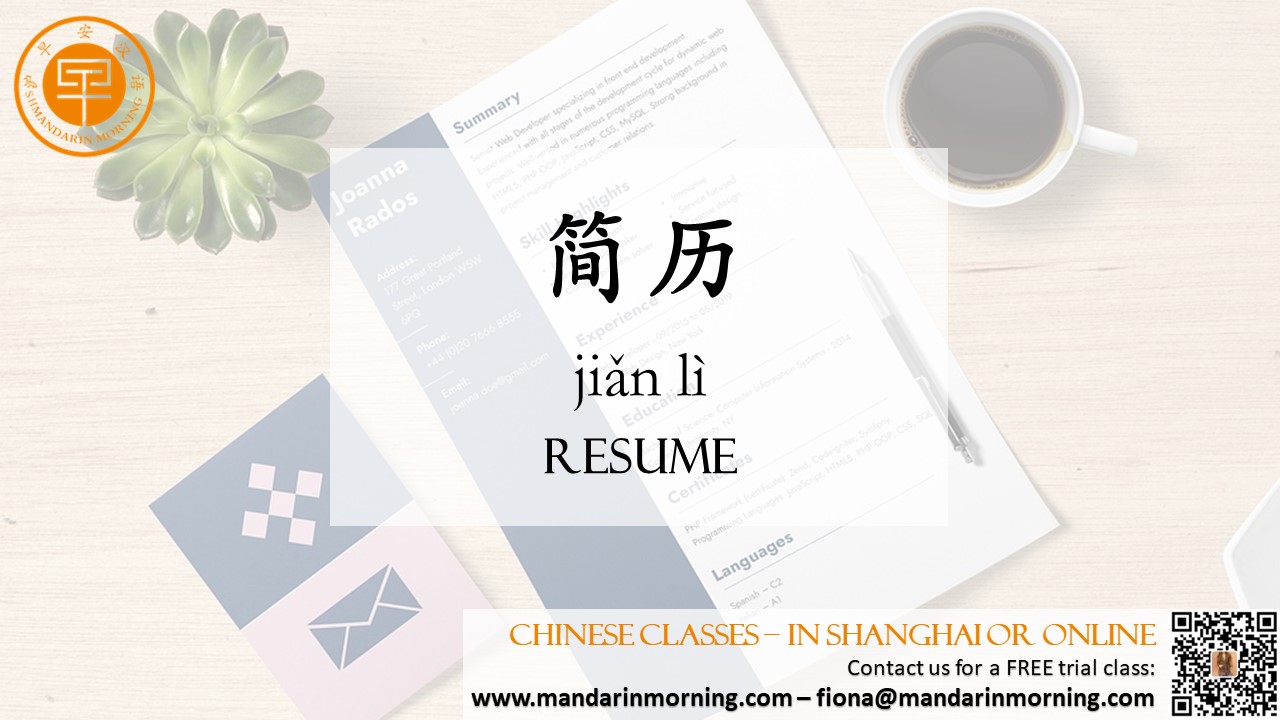| Thinking about working in China? You’ll most likely need to provide your resume in Chinese — 中文简历 (Zhōngwén jiǎnlì). In this article, we’ll guide you through the essential Chinese vocabulary to craft an impressive CV.  The first section of resume is usually personal information — 个人信息 (gèrén xìnxī). It will include fields such as: 姓名 (xìngmíng) - full name 性别 (xìngbié) -gender 出生日期 (chūshēng rìqī) -date of birth 联系方式 (liánxì fāngshì) -contact Information Contact information usually includes basic information such as phone number, or 电话 (diànhuà), and e-mail address, or 邮箱 (yóuxiāng). 求职意向 (qiúzhí yìxiàng) -desired position It may be rare for resumes in English, but it’s pretty common in China to provide personal information like health condition, or 健康状况 (jiànkāng zhuàngkuàng); marital status, or 婚姻状况 (hūnyīn zhuàngkuàng); and even height, or 身高 (shēngāo). Next section that is important to add to your CV is educational background, or 教育背景 (jiàoyù bèijǐng). You can list your academic experiences from newest to oldest. 学校 (xuéxiào) -school/university 专业 (zhuānyè) - major 学位 (xuéwèi) - highest degree obtained 学毕业日期 (bìyè rìqī) -graduation date 主修课程 (zhǔxiū kèchéng) - major courses If you have any extra achievements — scholarships, completed training programs, or experience studying abroad — definitely include them in your CV. 留学经历 (liúxué jīnglì) - experience studying abroad 奖学金 (jiǎngxuéjīn) - scholarship(s) 项目经验 (xiàngmù jīngyàn) - special program(s) |